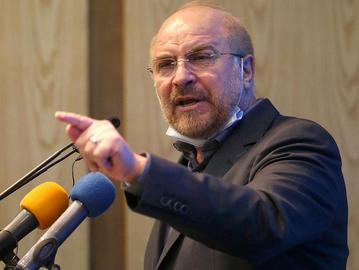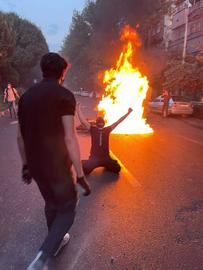The heads of the Iranian legislative and executive branches of government have spoken against any change to the constitution, amid weeks of nationwide popular protests calling for more freedoms and women's rights.
Iran has been gripped by anti-government demonstrations since a 22-year-old woman died in custody on September 16 after her arrest by Tehran’s morality police for an alleged breach of the country’s strict dress code.
The protest movement has grown to become one of the biggest threats to the clerical regime since the 1979 Islamic Revolution, with women protesters burning their head coverings and shouting anti-government slogans. There have also been calls for referendums on various matters, including the compulsory hijab and the constitution.
Addressing a conference on December 3, parliament speaker Mohammad Bagher Ghalibaf said "the enemy's main goal was to undermine the principles of the constitution”.
"We have no valid document other than the constitution in the country. In the discussions for a new governance, our focus should be on implementing the constitution and not on changing its provisions", he added.
President Ebrahim Raisi said the constitution, which he described as “the most progressive law in the world”, has “fixed the [Islamic Republic’s] unchangeable principles".
"But there are methods of implementing the constitution that can be flexible", he told the National Conference on Responsibility to Implement Constitution.
According to Iran’s constitution, a referendum should be organized if two-thirds of parliament vote for it or if the supreme leader requests it. A referendum can be held on any issue, except on the "non-revisable principles" of the Islamic Republic such as the official state religion of the country -- Twelver Shia Islam.
Earlier this week, Attorney-General Mohammad Javad Montazeri announced that lawmakers, the judiciary and the Supreme Council of Islamic Revolution were reviewing legislation requiring women to cover their heads in public areas, with the results to be announced within two weeks.
Iranian security forces have responded to the current wave of anger by unleashing a brutal crackdown that has killed more than 440 people, including dozens of children, according to activists. Thousands of people have also been detained.
Iranian officials have blamed the Islamic Republic’s foreign foes and their agents of fomenting the unrest, without providing any evidence.

























comments